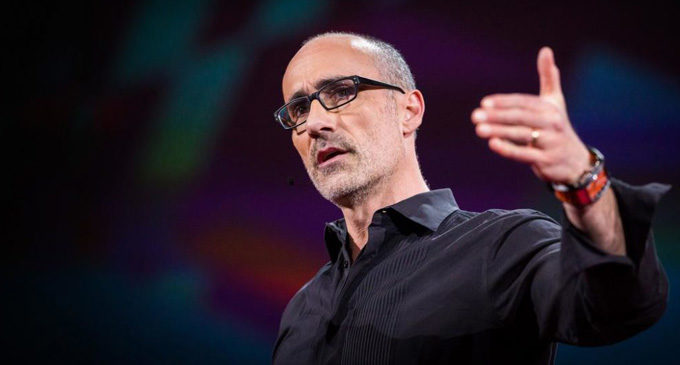In Pursuit of Happiness event draws over 20,000 virtual attendees
Arthur Brooks was one of the keynote speakers at the In Pursuit of Happiness conference.

Conference coincides with National Mental Health Action Day
By Judie Holcomb-Pack
It’s a well-known phrase in our Declaration of Independence – our unalienable right to the pursuit of happiness. But why is happiness so elusive for so many?
The Atlantic, a literary and cultural magazine founded in 1857, hosted a day-long virtual conference seeking answers to this question on Thursday, May 20. The agenda featured interviews and presentations by over 20 professionals touching on every aspect of emotional happiness. The conference was in recognition of National Mental Health Awareness Month, which is May, and Mental Health Action Day.
When attendees registered to attend this free event, they were given a short survey to fill out. During the conference, attendees could also ask questions or submit what personally made them happy. The happiness suggestions were incorporated into a graphic print created by visual storyteller and artist Azelle Vanquillie during the course of the day. The Dalai Lama also popped in at various times giving advice on how to achieve happiness and peace through mindfulness. Also on the agenda were Rev. T.D. Jakes, Deepak Chopra, and U.S. Surgeon General Vice Admiral Vivek Murthy.
Among the most insightful presentations was one by Arthur Brooks, a behavioral social scientist, speaker and writer whose columns appear regularly in The Atlantic. He also offered happiness exercises during the conference.
But first, we must ask ourselves the question: What is happiness? There were several definitions presented, but Brooks explained happiness as being part enjoyment, satisfaction, and having a purpose in life. He urged attendees to consider these areas of their lives to see if their lives are balanced or is there an unbalance in a particular area.
Brooks noted that instead of focusing on the “pursuit” of happiness as something that can be attained, to look more as happiness being a journey with no ending.
Some people believe that having wealth, power and fame will bring happiness, but studies have proven this not to be true. One study found that people who earn between $75,000 and $100,000 in income were among the most satisfied and happy of all survey respondents. Interestingly, additional increases in income beyond that point did not bring a similar increase in their level of happiness – in other words, proving the old adage, “Money can’t buy happiness.”
The pandemic has given us a time to reassess our lives and to determine what parts of our lives do we need to “beef up” to bring more balance and thus more experiences of happiness. Brooks mentioned a life satisfaction study that Harvard University has been conducting among its students and graduates for over 80 years. Taking into consideration health issues and financial security, for the oldest participants, now in their 80s, it found that those with close, personal, loving relationships were the happiest.
The conference and its presenters offered a lot of insight into mental health and happiness and what we can do to stay mentally healthy and satisfied with our lives. Most of us already know what we should do: eat healthy foods, exercise, spend some time in quiet meditation or prayer, and open our hearts to the love of family and friends. It’s up to each of us to determine how we proceed on our journey to happiness.
This was the inaugural conference presented by The Atlantic and the In Pursuit of Happiness sessions can be found on their YouTube channel.









